|
Genres, Themes, Actors, and Directors:
- Battle-of-the-Sexes
- Bertrand Blier Films
- French Films
- Living Nightmare
- Satires and Spoofs
Response to Peary’s Review:
In his review of this mind-bending “cult comedy” (a.k.a. Calmos) by director Bertrand Blier, Peary’s first wry comment is that it “would probably cause more arguments if anyone could figure out what it’s about.” He argues that the film has a “promising beginning”, but then “takes an odd, foolish turn, moving out of a rudely funny, believable realm… into a confusing surreal fantasy”. He takes issue with Blier’s decision to have the men “become sexual objects to be used and humiliated” by women who “become the aggressors [and] think that men are only good for one thing”, and notes that Blier still “treats his actresses in the old-fashioned way, as impersonal sexual entities”. What Peary fails to recognize, however, is that Blier (as usual) is simply taking his bizarrely conceived scenario to the ultimate limit, without concern for either reality or propriety. This is, after all, a film about “misogynistic, gross, irresponsible, superior” men, and it’s their warped world view we’re seeing on display here; everything that happens — a true living nightmare — is told from their perspective, and while it may not be “believable” by any stretch of the imagination, it’s far from confusing.
Instead, scene after scene will simply leave you gaping in wonderment at the sheer audacity of Blier’s vision: Marielle (who keeps loaves of bread in his desk drawer at work, and accepts gifts of pate from his patients) finding his pre-appointment snack ruined by a gorgeous female client loudly scratching her genitalia; Marielle comforting Rochefort (the closest they get to homoerotic love) as he wakes up from a nightmare about women (“They bug me even in my sleep!”); Marielle and Rochefort gorging on rich food and wine with some local priests who have temporarily taken them under their wing; Brigitte Fossey (Marielle’s beautiful wife) trying in vain to tempt him into bed; and countless others. The final sequence — which goes above and beyond the film’s prior level of perversity — is guaranteed to leave you floored, if not mildly queasy (which, I imagine, may have been Blier’s intent). Ultimately, Femmes Fatales is a film which needs to be seen to be believed; and while it certainly won’t be for all tastes, it’s unique enough to be must-see viewing at least once for all film fanatics.
Redeeming Qualities and Moments:
- Jean-Pierre Marielle as Paul Dufour
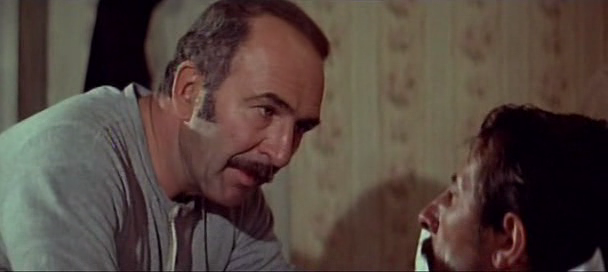
- Jean Rochefort as Albert
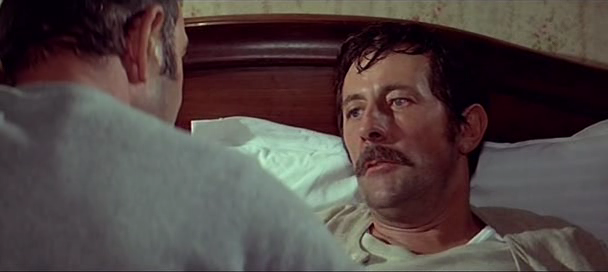
- Brigitte Fossey as Marielle’s wife
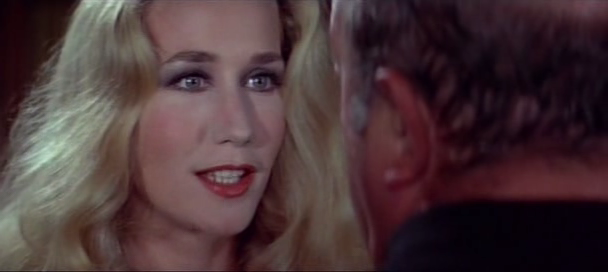
- Countless memorable sequences
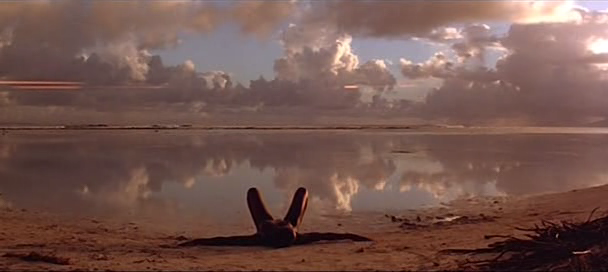
- Claude Renoir’s vibrant cinematography
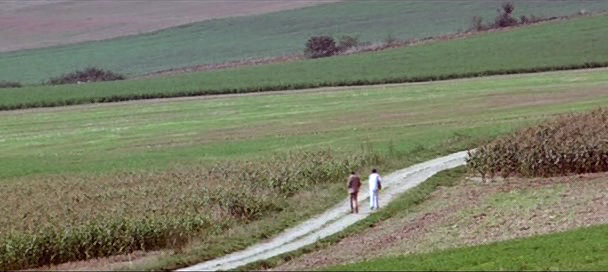
- Georges Delerue’s jazzy score
Must See?
Yes, as a most unique and entertaining film.
Categories
Links:
|
One thought on “Femmes Fatales (1976)”
First viewing. Not a must.
While I agree overall with certain insights in the assessment…: I don’t find the film all that confusing (indeed, it comes off like a one-trick pony, albeit variations on a trick); “scene after scene [reveals] the sheer audacity of Blier’s vision…” – …I don’t find it all that satisfying a film.
My main criticism is that the film never seems to find its footing or achieve its rhythm. It could very well be that this is one that has to catch you in the right mood – but I wonder what that mood would be. Didn’t seem to fall in line with any of mine; and I’m moody.
I’ve certainly enjoyed some of Blier’s films (immensely) but my sense is that his signature style is one that could go awry, and I can’t help but feel desperation on display here. Quite a few stretched-out sequences seem like padding. And unlike more ‘unified’ Blier films, this one seems a victim of its own outrageousness. Some of it doesn’t even seem to be genuinely his own vision: indeed, the whole ‘medical orgy’ scene near the end seems heavily influenced by Woody Allen’s ‘Everything You Always Wanted to Know About Sex…’ (released four years before).
Sprinkled throughout are moments that show Blier in fine dialogue form: in one scene, a character becomes a mouthpiece for the film’s overstated theme, but it’s still very funny –
“That’s all that matters to them: the cock!…Moroccan fighters were schoolboys compared to them. And when they’re done, here come 30 more. And 30 more. And it goes on to infinity, like a tide. All of that on my cock.”
As well, at one point, Rochefort tosses out a stunning truism about men: “What’s not easy is to woo us, to seduce us.”
But piecemeal is piecemeal – and that’s the feeling I’m left with here.
As a side-note: I think Marielle (whose work I’m not so familiar with) gives a fine, often-understated performance. I kept thinking that I’d like to see him in a better film.